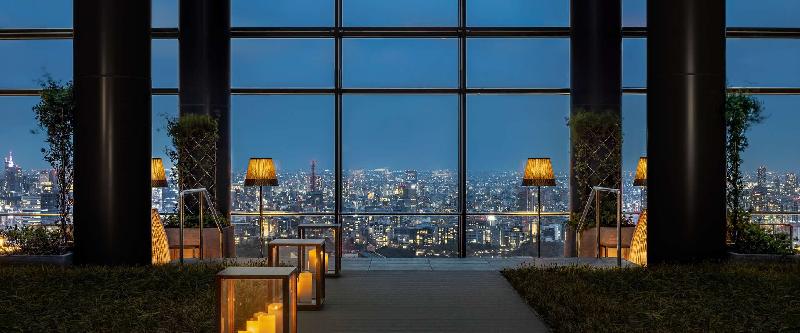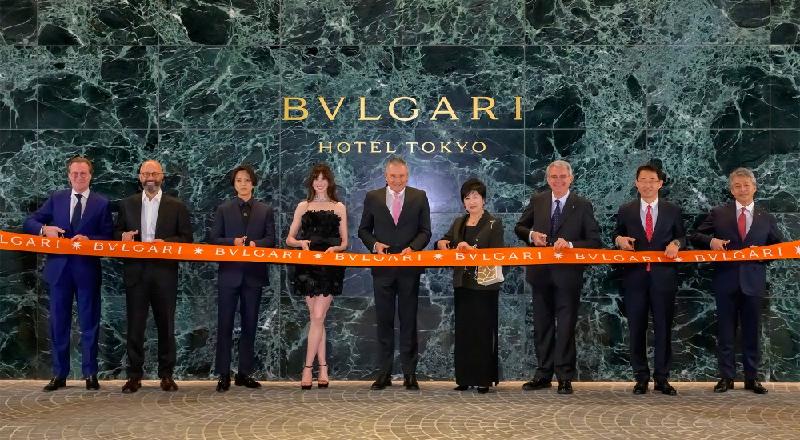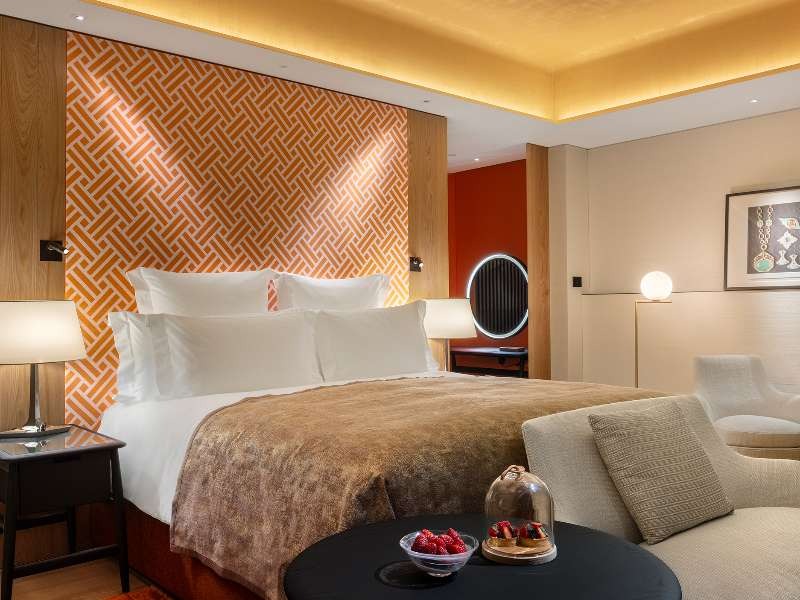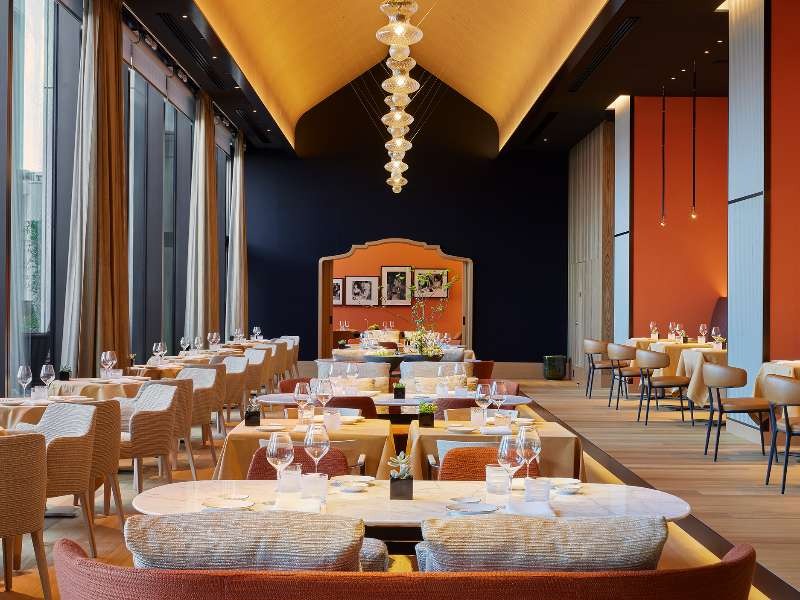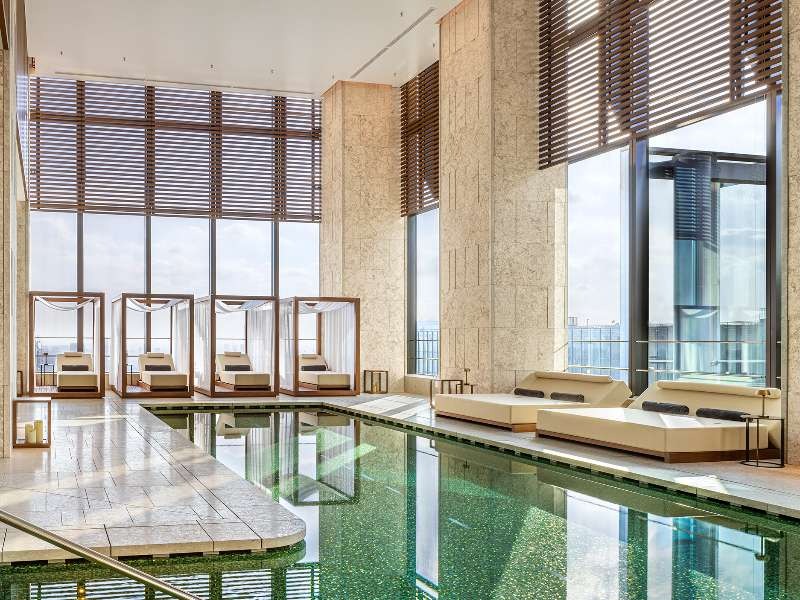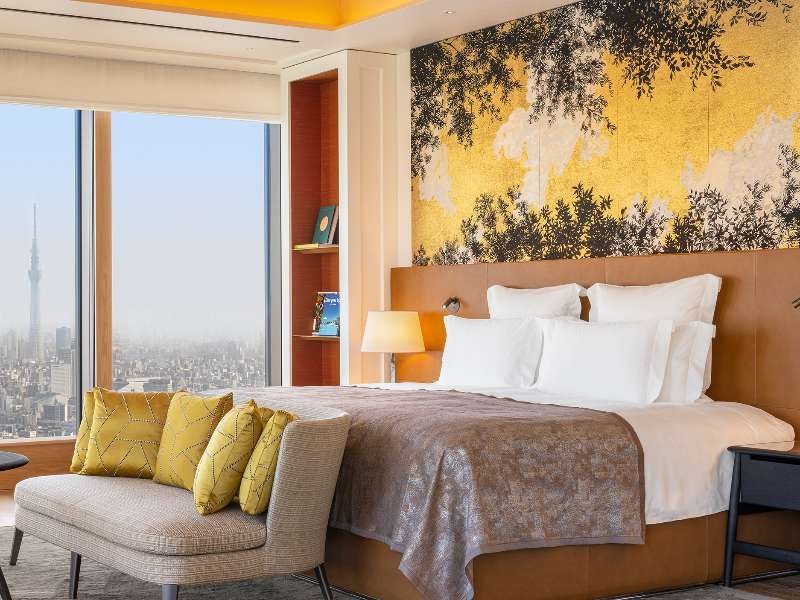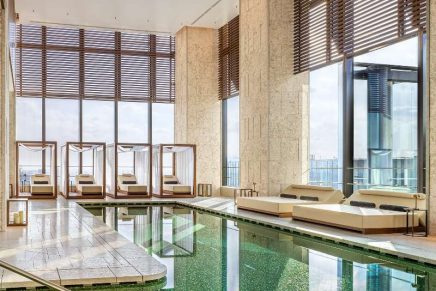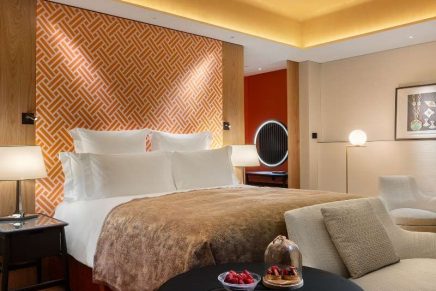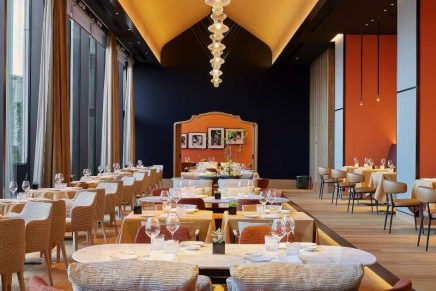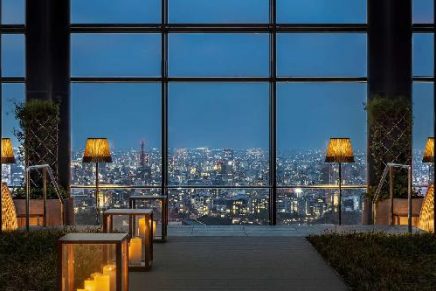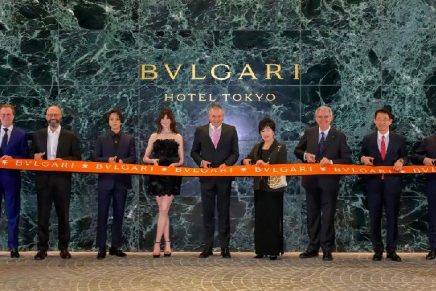Bulgari Hotel Tokyo brings Italian glamour to the heart of Japan’s capital.
The opening of the Bulgari Hotel Tokyo marks the Italian luxury brand’s latest venture in the hotel industry. The hotel offers 98 rooms and suites designed by Milan-based architectural firm ACPV, offering a luxurious blend of Italian lifestyle and Japanese culture.
A new gem in the Bulgari Hotels crown has opened in the heart of Tokyo, situated on the 40th to 45th floors of the Tokyo Midtown Yaesu. The towering skyscraper overlooks the iconic red brick Tokyo Station and the Imperial Gardens, with views stretching all the way to Mount Fuji. Designed by Milan-based architectural firm ACPV — Antonio Citterio Patricia Viel — the new hotel offers relaxed elegance in 98 rooms and suites with a luxurious fusion of Italian lifestyle in harmony with local history and culture.
For the Bulgari brand, the opening of the luxury hotel can serve as a means of extending their brand reach and associating themselves with luxury and exclusivity, which can benefit their overall brand image and sales.
“We are proud to add a new gem to the crown of the Bulgari Hotels & Resorts collection with the opening of the Bulgari Hotel Tokyo in Japan, a market that has been a strategic market for us for over 30 years. Jewelry and hospitality combine perfectly to meet Bulgari’s clients’ expectations of a high level of service not only in our brand stores, but also when staying in our extraordinary properties, providing us with an opportunity to share the Italian luxury experience, design and creativity in an environment which reflects the Bulgari spirit,” enthused Bulgari Group CEO Jean-Christophe Babin.
The fusion of Italian and Japanese design and culture in the hotel can provide a unique and enriching experience for guests, allowing them to learn about and appreciate both cultures.
Jean-Christophe Babin welcomed prominent guests to the inaugural celebrations and was joined for the ribbon cutting ceremony by the governor of Tokyo, the Italian ambassador to Japan, and actress and Bulgari muse Anne Hathaway. A reception followed for 400 guests, including Japanese actors Ryoko Yonekura and Ken Watanabe and celebrities Kōki and Hikari Mori. Guests were treated to an exceptional experience, including a personal tour of the hotel’s signature spaces, notably the sumptuous 400-square-meter Bulgari Suite, the 1,000-square-meter Bulgari Spa and the spectacular rooftop Bulgari Bar and Terrace Gardens, affording sweeping views of Tokyo.
Faithful to its unique identity, the Italian jeweler links each of its hotels to a precious and rare gem. The new addition is associated with a pink diamond, in honor of the beauty and harmony rooted in Japanese culture, and the famous Sakura pink cherry blossoms that grace the country’s landscape each year.
While the luxury hotel’s opening was celebrated with much fanfare, it raises questions about the trend of luxury brands expanding into the hospitality industry. While some view these collaborations as opportunities to extend the brand’s reach and offer customers an all-encompassing luxury experience, others criticize them for diluting the authenticity of both the brand and the hotel industry.
Additionally, some critics question the sustainability of these ventures, particularly in a post-pandemic world where travel and tourism have been significantly impacted.
Furthermore, the use of rare gems to associate each hotel with a particular brand raises questions about the environmental impact of mining and the ethics surrounding the use of precious resources for marketing purposes. For the Bulgari brand, the opening of the hotel can serve as a means of extending their brand reach and associating themselves with luxury and exclusivity, which can benefit their overall brand image and sales.

